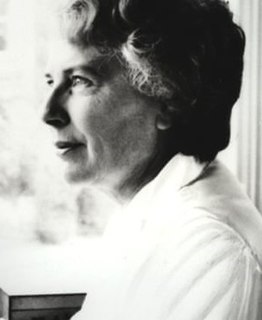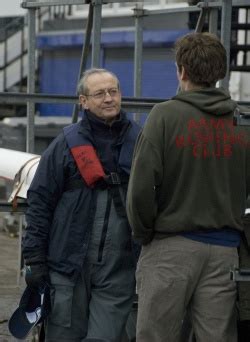A Quote by Seneca the Younger
Nature has made us passive, and to suffer is our lot. While we are in the flesh every man has his chain and his clog; only it is looser and lighter to one man than to another, and he is more at ease who takes it up and carries it than he who drags it.
Related Quotes
We must accept what science tells us, that man was born from the earth. But, more logical than the scientists who lecture us, we must carry this lesson to its conclusion: that is to say, accept that man was born entirely from the world - not only his flesh and bones but his incredible power of thought.
Solitude is the profoundest fact of the human condition. Man is the only being who knows he is alone, and the only one who seeks out another. His nature - if that word can be used in reference to man, who has ‘invented’ himself by saying ‘no’ to nature - consists in his longing to realize himself in another. Man is nostalgia and a search for communion. Therefore, when he is aware of himself he is aware of his lack of another, that is, of his solitude.
If idioms are more to be born than to be selected, then the things of life and human nature that a man has grown up with--(not that one man's experience is better than another's, but that it is 'his.')--may give him something better in his substance and manner than an over-long period of superimposed idiomatic education which quite likely doesn't fit his constitution. My father used to say, 'If a poet knows more about a horse than he does about heaven, he might better stick to the horse, and some day the horse may carry him into heaven'
Only because of the striving nature of men has mankind achieved what it has so far. Men are made that way; they are designed to reach out for things which they cannot see with their eyes but can only imagine. A man naturally seeks after his dream, his ideal, while women are more concerned with the here and now rather than the future, intangible realm.
Where no man thinks himself under any obligation to submit to another, and, instead of co-operating in one great scheme, every one hastens through by-paths to private profit, no great change can suddenly be made; nor is superior knowledge of much effect, where every man resolves to use his own eyes and his own judgment, and every one applauds his own dexterity and diligence, in proportion as he becomes rich sooner than his neighbour.
Only when there is a wilderness can man harmonize his inner being with the wavelengths of the earth. When the earth, its products, its creatures, become his concern, man is caught up in a cause greater than his own life and more meaningful. Only when man loses himself in an endeavor of that magnitude does he walk and live with humanity and reverence.
Tobacco smoke is the one element in which, by our European manners, men can sit silent together without embarrassment, and where no man is bound to speak one word more than he has actually and veritably got to say. Nay, rather every man is admonished and enjoined by the laws of honor, and even of personal ease, to stop short of that point; and at all events to hold his peace and take to his pipe again the instant he has spoken his meaning, if he chance to have any.
Here's a strange fact: murder a man, and you feel responsible for his life - ''possessive'', even. You know more about him than his father and mother; they knew his fetus, but you know his corpse. Only you can complete the story of his life, only you know why his body has to be pushed into the fire before its time, and why his toes curl up and fight for another hour on earth.
When the sacredness of one's word is matched in the attributes of his character throughout, all that constitutes a man, then we find that there is something in a man's life greater than his occupation or his achievements; grander than acquisition or wealth; higher than genius; more enduring than fame.
I watched them carefully, as always, searching for a sign of mental weakness. But there was none. Every man was coping well with the hardship, each one of them locked into his task. But it is one thing to practice, and quite another to race. And the trouble is, you never know who, on the day, will find it within his soul to give more than he has ever given before. It takes a kind of madness to compete like that, because of the will power and the ego, and his loyalty. And while some men have it, others have yet to find it. And a coach can only use his best judgement as to who those men will be.
This leads us to note down in our psychological chart of the mass-man of today two fundamental traits: the free expansion of his vital desires, and, therefore, of his personality; and his radical ingratitude towards all that has made possible the ease of his existence. These traits together make up the well-known psychology of the spoilt child.








































